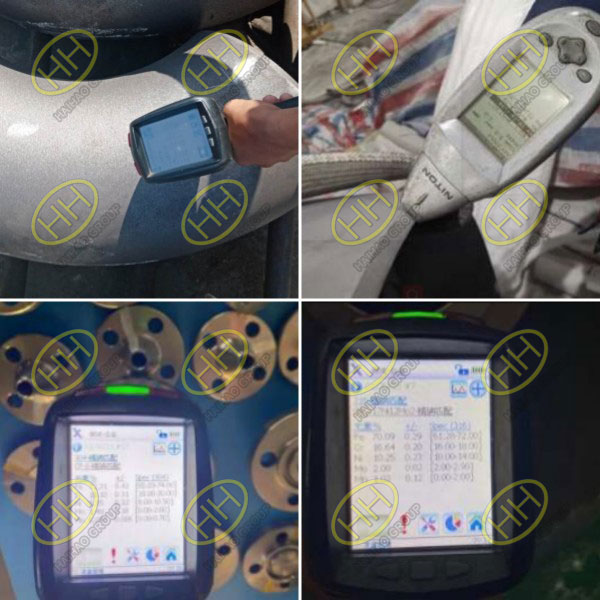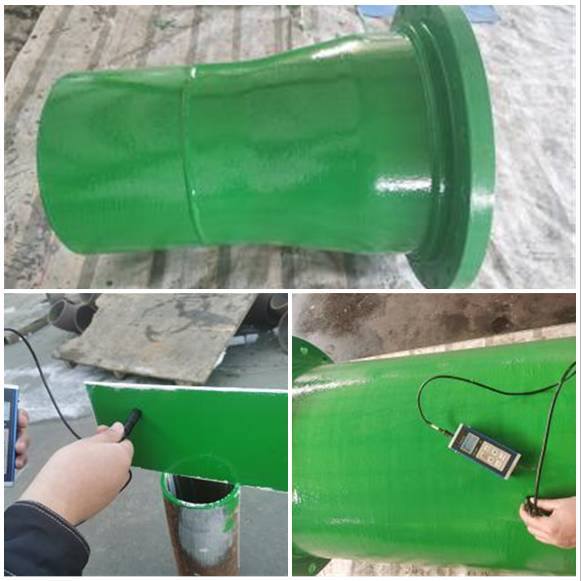Quality control in pipeline components: How Haihao Group ensures high standards
Why Quality Control Matters in Pipeline Projects?
In the oil & gas, petrochemical, and construction industries, pipeline reliability is critical for safety and efficiency. A single failure in a pipeline system can lead to costly downtime, environmental hazards, and safety risks. That’s why high-quality components—such as pipes, flanges, gaskets, and fasteners—must undergo strict quality inspection to ensure durability and compliance with international standards like ASME, JIS, and ASTM.
At Haihao Group, we understand the importance of quality control. Recently, we completed comprehensive inspections for a batch of pipeline components supplied to a long-term client in Côte d’Ivoire, ensuring that all products met the required specifications before shipment.

Quality contorl in pipeline product
Key Inspection Processes at Haihao Group
Haihao Group follows a multi-step quality inspection process to guarantee that all pipeline components meet international standards and customer requirements. Our quality control process includes:

EN 10253-2 seamless reducing tee
Dimensional & Visual Inspection
Before conducting advanced tests, we perform initial dimensional and visual inspections to detect:
Surface defects such as rust, scratches, bends, or cracks.
Dimensional accuracy to ensure precise fitting in pipeline assemblies.
Flatness and roundness for ASME B16.47 and JIS 10K/5K flanges to prevent sealing issues.

PMI inspection
Chemical Composition Testing
To verify the material composition of pipeline components, we conduct spectral analysis and chemical composition tests, ensuring compliance with standards such as:
ASTM A106 Gr.B pipes for high-temperature and high-pressure applications.
ASTM A105 flanges, which require a specific balance of carbon, manganese, and silicon for strength.

Ultrasonic testing for butt welding 90 degree elbow
Ultrasonic Thickness Testing
Ultrasonic thickness testing (UTT) is essential to ensure that pipe wall thickness meets required tolerances. This non-destructive testing (NDT) method helps to:
Detect internal defects such as cracks or inconsistencies.
Confirm that pipes have uniform wall thickness, crucial for pressure handling and longevity.
Recently, we conducted UTT inspections on 32” ASTM A106 Gr.B pipes to confirm their structural integrity before delivery.

hardness testing
Hardness Testing for Fasteners
Fasteners such as A193 B7 bolts and A194 2H nuts must withstand extreme pressure and temperature conditions. We perform:
Brinell and Rockwell hardness tests to verify mechanical strength.
Coating inspections for hot-dip galvanized fasteners, ensuring superior corrosion resistance in offshore and industrial environments.

Epoxy coated prefabrication
How High-Quality Components Improve Pipeline Performance?
Using strictly tested pipeline components offers multiple benefits, including:
Increased Durability – Properly inspected materials last longer under high pressure and temperature.
Reduced Risk of Failure – Avoiding structural weaknesses ensures safer operations.
Improved Sealing Performance – High-precision flanges and gaskets prevent leaks.
Lower Maintenance Costs – Fewer failures mean less downtime and maintenance expenses.
At Haihao Group, we are committed to delivering top-quality pipeline components that meet and exceed industry standards. Our advanced quality control processes ensure that every pipe, flange, and fastener performs flawlessly in real-world applications.
Looking for reliable pipeline components? Contact Haihao Group today! Email:sales@haihaogroup.com
